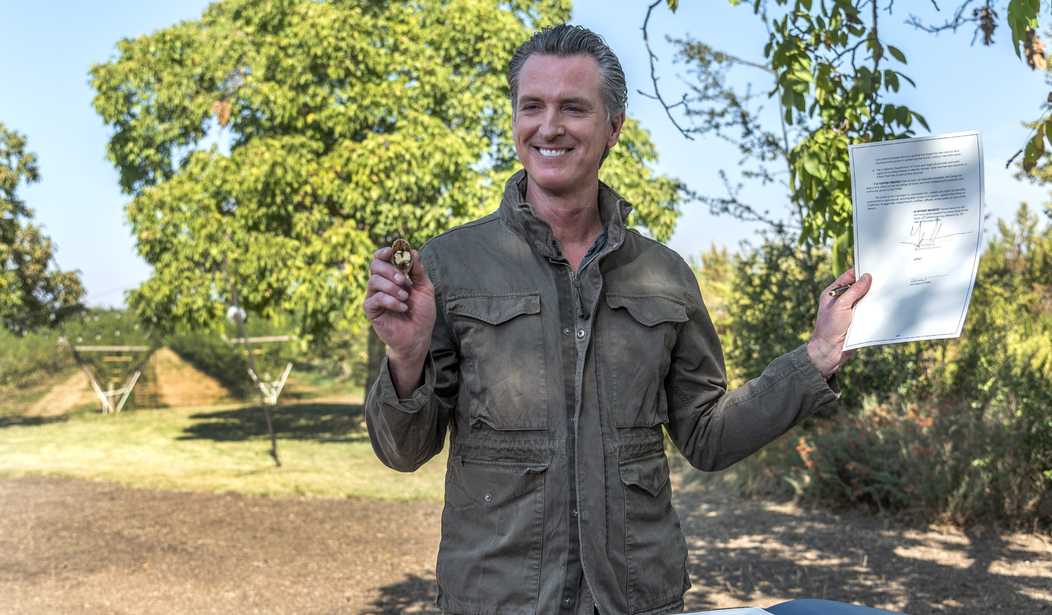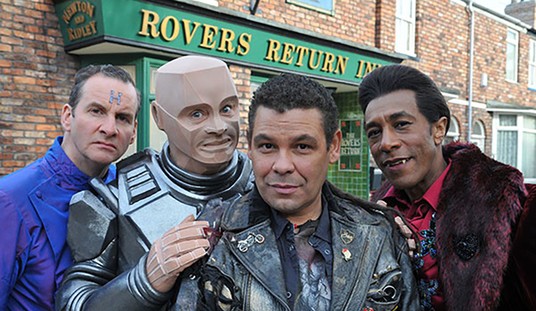California Democrats are doing it again. Whenever they’re afraid that the electorate might have a mind of its own and might be tired of their shenanigans – so much that a recall against one of them might be successful – they attempt to change the rules midstream.
They did this in 2017 when State Sen. Josh Newman (D-Orange County) was successfully recalled despite Democrats passing legislation that retroactively changed the number of signatures needed to qualify a recall petition. Newman was a newly-elected legislator at the time and had won his seat with only a few hundred vote margin, giving the Democrats a supermajority. One of the first things California Democrats did with that supermajority was to pass a highly unpopular gas tax (adding an additional .12 gallon plus at least $50/car in registration fees). California Republicans, in an uncharacteristically bright strategic move, initiated a recall against Newman essentially because he was the lowest-hanging fruit and because his district is full of people who commute to and from work.
Now Newman is back in the State Senate and has sponsored legislation that would allow politicians targeted by a recall to get a copy of the petition – including the names of everyone who signed it and their contact information.
Why would they need that?
Newman believes people who signed a recall petition against him were given false information about what they were signing and that he should have had an opportunity to correct that. He told the Orange County Register:
Newman said petition gatherers in his recall asked prospective signers, ”’Are you mad about this gas tax? Sign this petition.’ They didn’t tell them that the actual text of the petition was about recalling an elected state senator.”
Newman has provided zero proof of that assertion, and the text of the petition is provided to each signer before they sign. But anyway:
Since recall petitions aren’t public records, Newman said his team had no way to try to track down voters who’d signed the petition to make sure make sure they understood what they were signing.
And, as he also said in a committee hearing in Sacramento Monday:
“From my view a recall is, in effect, trial by ballot. And you should be able to face your accusers.”
Yes, Senator, it’s a trial by ballot. If enough people sign the petition, triggering a recall election, the trial by ballot occurs. Under California law, a recall election is scheduled no less than 60 days and no more than 80 days after the recall petition is certified (meaning, there are enough verified valid signatures on the petition to meet the threshold). During that 60 to 80 day time period, the officeholder has the opportunity to convince voters that the opposition duped them into signing the recall petition and why they should vote to keep them in office. Not to mention, an officeholder targeted for recall can raise unlimited funds to defend their seat; they aren’t subject to normal campaign finance contribution limits.
And, during the entire time recall petition signatures are being gathered, that officeholder is most likely using whatever resources they have available to them as a public official to send communications with sympathetic messaging to their constituents. So, officeholders have an overwhelming advantage in a recall election already.
But in Newman’s mind, when a registered voter signs a petition seeking the recall of an elected official, that’s an act of advocacy that should be reportable:
“Everybody does have a right to privacy, but politics is mostly about advocacy,” Newman told FOX40. “And so when we vote, your vote should be private, right? It should be secret. But when we advocate that’s an inherently public process, although I will allow that we shouldn’t allow people to use this information.”
Under Newman’s proposed law, SB-663, here’s who can get that information and why:
The target of a recall petition, and the representatives of the target of a recall petition as may be designated by the target in writing, for the purposes of communicating with registered voters to determine whether they signed the recall petition and whether they understood the recall petition they may have signed, and to assist registered voters to withdraw their signatures on the recall petition, if they so desire.
Hold up. They can also “assist registered voters to withdraw their signatures”? Just what type of assistance are they thinking of here?
But, of course, Newman claims there are privacy protections built into the bill, and that the information will only be used to “further the purposes of Section 3 of Article I of the California Constitution,” or the section authorizing recalls. A writeup of Newman’s bill from his hometown Orange County Register claims that “Only the targeted official is given access to the petition, for example, and that copy must be destroyed within 15 days of the recall qualification date,” but that’s not quite accurate. The targeted official can share the list of signatories with their staff AND contractors.
As amended April 5, the bill reads (in part):
11048.4. (a) The target of a recall petition and the designated representatives of the target of a recall petition shall not publicly disclose the name or address of any signer of the recall petition, except that the name or address of a signer may be disclosed to an entity with whom the target or the target’s designated representatives have contracted to provide mass mailing or telephone or electronic media communications using mass distribution technology.
(c) A public officer shall not discriminate against a person on the basis of the fact that the person signed a recall petition.
Okay, so they can’t “publicly” disclose the name and/or address of a signer, but they can share it with a contractor who will provide mass mailing, telephone, or electronic media communications using mass distribution technology.
In plain English: The recall target and their “designated representatives,” meaning campaign staffers (undoubtedly partisan), will have access to the list to make contacts to individual signers, and the contractors can contact signers via text or robocall or email.
And none of that matters, because recall targets shouldn’t have a listing of who’s signed a recall petition anyway. Current law expressly prohibits sharing these records with the target because, as LA County’s Guide to Recall elections states:
“Some voters may have concerns about possible harassment if they sign an initiative, a referendum, and/or a recall petition.”
It then reassures voters that:
“Government Code Sec. 6253.5 provides that such petitions (and any memoranda prepared by the elections official in examining the petitions) are not deemed to be public records and are not open to inspection.”
That’s the specific code section Newman’s bill changes.
And, his bill isn’t even necessary. California law already prohibits signature gatherers from misrepresenting what the recall petition’s about. California Election Code Section 18600 states:
“It is a misdemeanor for anyone circulating a recall petition to intentionally misrepresent or make a false statement concerning the contents, purport, or effect of any petition to any person who signs, desires to sign, is requested to sign, or who makes inquiries with reference to it, or to whom it is presented for his or her signature. It is also a misdemeanor to willfully and knowingly circulate, publish, or exhibit any false statement or misrepresentation concerning the contents, purport, or effect of any recall petition for the purpose of obtaining any signature to, or persuading or influencing any person to sign, that petition.”
The law further states that the circulator must allow the signer to fully read the petition before they sign and that they cannot provide any financial inducement to the signer.
And, each county’s election division verifies the signatures on each recall petition, checking to see that the person who has signed the petition is a registered voter in that elected official’s district/jurisdiction and that the address listed on the petition matches the address listed on the voter rolls.
The recall qualification process is so rigorous that, as the Orange County Register reports, “Since California voters approved the recall process in 1911, there have been 179 recall attempts. Only 10 got enough signatures to make the ballot, and just six succeeded.” Just 3.3 percent of recall attempts have succeeded, yet Newman feels it necessary to chill that exercise of free speech?
Newman believes that votes should be secret but that signing a petition is political advocacy that should be reportable, and that voters have nothing to fear. But let’s review what happened during Newman’s recall.
First, as mentioned, California Democrats changed the law midstream during Newman’s recall to “extend…the amount of time between a recall petition effort and the actual election…[and] give voters a chance to remove their signatures from the petition.”
And then-Gov. Jerry Brown (D-Moonbeam) visited Orange County to support Newman and called those who supported the recall of Newman “freeloaders.”
When that didn’t work, “goon squads” showed up over Memorial Day weekend 2017 to harass signature gatherers and people who showed an interest in signing the petition. As Kira Davis reported at the time:
Official state campaign disclosure reports show Governor Brown’s political team has transferred $100,000 in the past week and has hired out-of-state “blockers” to target volunteer signature gatherers.
The blocking tactics include showing up in front of stores where people are gathering signatures and yelling at signature gatherers and anyone who shows interest in signing the petition.
Over Memorial Day weekend, “goon squads” of 6-8 people showed up at each store to square off against signature gatherers standing by themselves in front of the store.
Intimidating people who might want to sign a recall petition is already a misdemeanor under California law, but Newman and Moonbeam Brown didn’t let that stop them.
They went even further a few weeks later when Newman supporters were caught on video intimidating and harassing signature gatherers, cursing and using homophobic slurs.
Remember, these are just a few verifiable instances of harassment. If Newman’s bill were law, anyone who owned a retail establishment would not sign a petition. Anyone whose work was in any way related to government contracts or public opinion would not sign. There’s no way you’d convince a government employee to sign it. This bill would chill protected First Amendment speech like almost no other bill has.
Newman’s bill passed committee Monday and has a long way to go, but given the Democrat majority in Sacramento, it’s not hard to imagine the bill becoming law – unless everyone in California and throughout the country makes a lot of noise about this existential threat to a fundamental constitutional right.















Join the conversation as a VIP Member